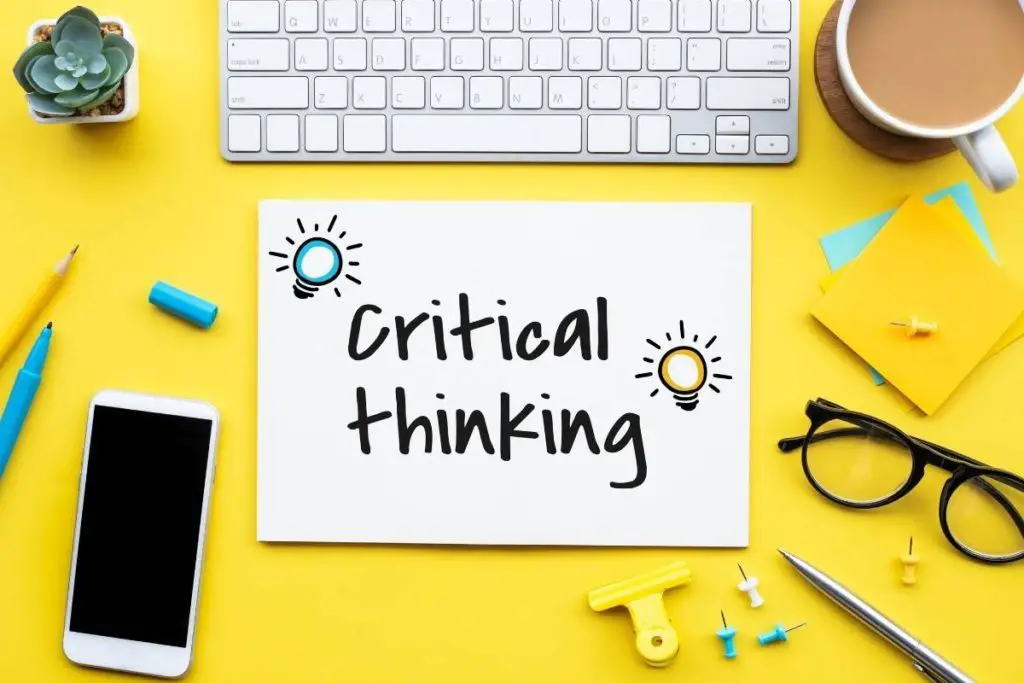The Power of Analysis: Critical Thinking Skills Every Student Needs
Inside today's fast-paced plus information-rich world, the ability to think critically has become increasingly essential for students. As they will navigate through a lot of data, viewpoints, and conflicting details, honing critical thinking skills empowers these people to make well informed decisions and strategy challenges using a clear and analytical mentality. This foundation not only supports academic success but likewise prepares students with regard to the complexities regarding the real entire world, where critical evaluation and reasoned judgment are paramount.
Understanding and cultivating the imperative critical thinking abilities every student requires can transform the particular learning experience. By simply identifying strong critical thinkers in typically the classroom and knowing the key attributes that set these types of students apart, tutors can foster a setting that embraces request, encourages thoughtful discussion, and nurtures a spirit of curiosity. This article may explore the importance of crucial thinking and offer useful insights into exactly how students can produce these vital skills, making sure they are well-equipped to face the particular future with confidence and creativity.
Essential Critical Thinking Skills for Students
Building critical thinking expertise is essential for students to navigate the particular complexities of academia and the true world. One essential skill could be the capability to analyze info effectively. Students must learn to assess sources critically, differentiating between reliable proof and misinformation. This kind of skill not just aids in academic research but likewise empowers students in order to make informed judgements in their everyday lives. By honing additional hints , students can engage with content more significantly, fostering a solid understanding of numerous subjects.
Another key element of critical thinking could be the ability to assess arguments and spot logical reasoning. Strong critical thinkers recognize the structure regarding arguments, identify rational fallacies, and distinguish between emotional and logical reasoning. This discernment enables college students to engage in productive discussions, challenge assumptions, and develop sturdy argumentation skills. Simply by practicing these abilities, students learn in order to articulate their ideas clearly and persuasively, equipping them intended for future debates and presentations.
Curiosity plays the fundamental role in fostering critical pondering. Encouraging students to inquire questions and seek deeper understanding encourages a culture regarding inquiry. When college students are curious, they are more likely to challenge its status, check out multiple perspectives, and engage in thoughtful reflection. This inquisitive mindset not just enhances their academic performance but also prepares them for real-world problem-solving scenarios, where they need to assess various factors prior to making decisions. By nurturing curiosity, teachers can help learners develop a lifelong adore for learning and even critical engagement using the world close to them.
Identifying and Examining Critical Thinkers

Identifying sturdy critical thinkers in their classroom involves recognizing particular traits that indicate a student's convenience of analysis and reasoning. Effective student crucial thinkers often show curiosity, a willingness to ask queries, and an capacity to take part in careful silence before reacting. They tend in order to approach challenges with the open mind, showing flexibility in their own thinking and the readiness to think about substitute viewpoints. Observing exactly how students interact during discussions can reveal patterns within their believed processes and willingness to delve further into subjects.
Assessment of critical thinking expertise can be reached through various strategies, including analyzing students’ responses in composed assignments, projects, or even discussions. Strong intrigue skills stand out and about through the clearness and coherence of the thoughts, as good as their potential to support their very own positions with facts. Additionally, practitioners have to look for logical reasoning skills, this sort of as the capability to recognize fallacies or even differentiate between facts and opinions, mainly because these are key pieces of crucial thought. Encouraging critical thinking for students to challenge presumptions in group options can further provide light for their critical thinking capabilities.
Reflection and self-assessment are vital equipment in evaluating a new student's capacity to think that critically. By prompting students to assess their particular thought processes plus decisions, educators can facilitate deeper understanding and appreciation intended for their learning journeys. Integrating activities that provide students to think about their reasoning, discover biases, and examine their decision-making skills ultimately cultivates a classroom environment where critical thinking flourishes. Recognizing these elements equips educators to be able to foster stronger analytical thinkers who are prepared for real-world challenges.
The Impact associated with Critical Thinking about Student Success
Critical thinking is an essence of student good results, influencing not just academic performance but also personal growth. When students participate in critical thinking about, they are better equipped to examine information, make educated decisions, and resolve complex problems. This specific set of skills extends past the classroom, empowering students to find their way life's challenges along with confidence and clearness. As they learn to evaluate evidence and differentiate between information and opinions, these people cultivate a way of thinking that enhances their own overall educational experience.
In addition, critical thinking fosters a deeper comprehension of subject matter, enabling students to link concepts across disciplines. By employing conditional skills, students could scrutinize arguments, identify biases, and assess the validity of different viewpoints. This procedure not only leads to academic achievements but in addition prepares students intended for future endeavors, such as higher education or professional careers, exactly where critical analysis and even decision-making are vital.
Finally, the introduction of critical pondering skills nurtures curiosity and a lifelong really like of learning. Students who think vitally are more likely to question the status quo, find new information, and even develop innovative methods to problems. This natural inquisitiveness not simply enhances their educational journeys but also positions them while proactive contributors in order to society, willing to handle the complexities of the world along with a well-reasoned and thoughtful approach.